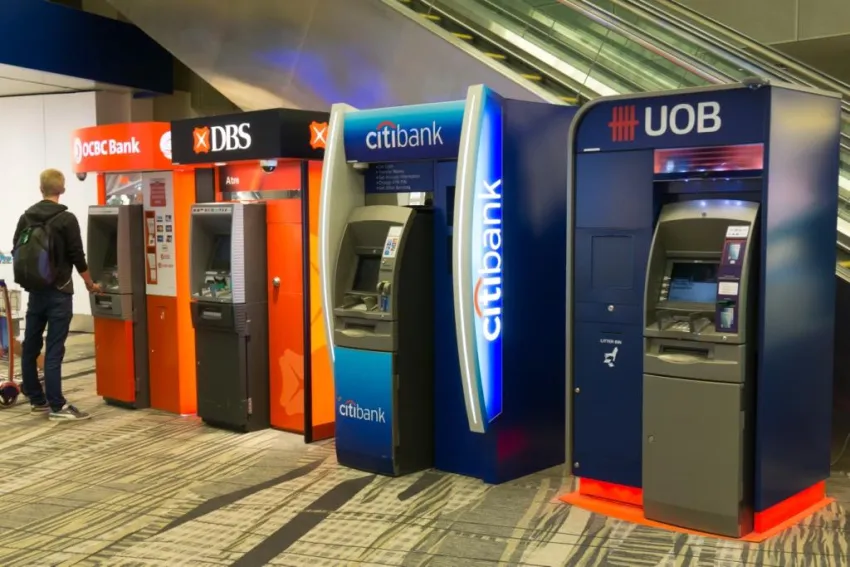
Banks are at the forefront of Singapore's future-ready upskilling charge
OCBC recently rolled out a massive $20m upskilling programme.
Whilst hiring talent was once seen as a go-to solution to address the city state’s chronic employment problems, tightening government policies on foreigner hiring and a lack of available and qualified manpower in people-short Singapore is fast putting the model out of currency.
Amidst a supply-demand imbalance in the local employment market, banks are making the most of the lion city’s limited talent pool and rapidly stepping up to the challenge by leading the upskilling charge in Singapore.
“With skill cycles becoming shorter than ever due to digitisation, hiring talents as you need is no longer feasible as it is not cost-efficient in the long run. Employers have to shift from being consumers of work to builders of talent,” according to Linda Teo, country manager of ManpowerGroup Singapore.
Turning to hiring is also made more difficult by the fact that 98% of finance employers have trouble finding qualified professionals from the available talent pool, according to Matthieu Imbert-Bouchard, managing director of Robert Half Singapore. Thus, equipping the existing workforce with additional digital capabilities has emerged as the go-to solution for the banking sector’s perennial hiring woes.
“Financial organisations are only as productive and effective as the staff who comprise it,” said Imbert-Bouchard. “Spending additional resources on staff training and skills enhancement can lead to invaluable return on investment for any business.”
OCBC recently rolled out a massive upskilling programme powered by a $20m investment to be made available for its 29,000 employees across the world. This comes at the heels of UOB’s Professional Conversion Programme launch late last year which aims to strengthen the digital capabilities of its employee pool in line with an HR tripartite advisory urging banks to keep up with the impact of technology on the workforce.
Also read: DBS to hire tech talent via hackathon
Not to be left behind, foreign banks in the city state have been steadily strengthening their respective human resource practices in the financial service sector with Maybank rolling out its own RM30m digital upskilling programme for its offices across Singapore, Malaysia, and the Philippines.
Citi also launched the Core Consumer Banking Skills training wherein 1,600 employees from frontline to managerial levels can avail of skill-based training in Process/UX design feedback and cybersecurity, according to Jorge Osorio, chief human resources officer at Citi Singapore. The bank is also planning to roll out Degreed, a platform where employees can access learning resources from Udemy, GetAbstract, Khan Academy, and TED in the coming months.
Talent crunch hammers hard
The financial and business services industry is expected to be hardest hit by a talent crunch in the Asia Pacific, according to a study by market research firm Korn Ferry, who estimated a loss to the lion city at around $142.51b if it fails to plug the manpower and talent problem by 2030.
“The talent crunch will be even more damaging for small but currently mighty spots Hong Kong and Singapore,” the report pointed out. By 2030, Hong Kong’s financial services skills shortages will result in lost revenue equal to a staggering 12% of its total economy, whilst Singapore’s could be equivalent to 6% of its economy, the report stressed.
“Financial services has a considerably large share in Singapore that a majority of talents will inevitably be affected,” added Nilay Khandelwal, regional director of Michael Page Singapore. “So learning something new whether it’s regulation, technology or skillset related, has to happen in the next two to three years so that in five years from now professionals still in line with the evolving banking jobs.”
Upskilling initiatives are borne out of necessity, Khandelwal pointed out, as banks have increasingly offshore BAU/process driven or SLA-driven jobs out of Singapore and into countries more suitable for shared services. This means that the remaining jobs in the lion city have become more niche and rose higher in the value chain, articulating the need for upgraded talent.
Digital workforce
The government is targeting the creation of 3,000 net jobs every year in the financial services sector with a goal to open another 1,000 employment opportunities in the fintech sector, according to the Financial Services Industry Transformation Map (ITM).
The ITM also expects the economic contribution of the financial services sector to grow at a 4.3% per annum on a real value-added basis over the medium term with 2.4% driven by productivity gains.
Faced with this stellar growth target, it comes as no surprise that banks have been ramping up HR practices and upskilling initiatives to prepare their workforce for the transition into a Smart Financial Centre in line with the country’s Smart Nation Project, said ManpowerGroup Singapore's Teo.
“Singapore banks are actively investing in digitisation and business transformation, with a view to cutting costs in the years to come. In terms of next steps, the banks are actively experimenting with their massive data platforms, including APIs, which should produce better customer-centered products,” according to Eugene Tarzimanov, Moody’s Investors Service vice president and senior credit officer, with the goal of leveraging on digital banking to service the underbanked in emerging markets.
“As banking & finance institutions serve both consumers and businesses, they have to be at the forefront of new technology, such as cashless payment and FinTech. To ensure that the whole organisation is digital-ready, banking institutions have to implement upskilling programs to transition the roles of employees such that humans and technology can complement each other,” Teo pointed out.
With more transactions going digital, banks have to strengthen cybersecurity measures to ensure that all transaction data is secure, she added. Therefore, it is imperative that its employees are well-versed with the latest technology and security policies in order to function effectively.
By investing in the professional skills development of their staff, companies will receive a boost from a more efficient workforce and deliver better results for the company, Imbert-Bouchard pointed out, especially as banks are deepening their fintech integration and application for their product and service offerings.
Banks, however, need to be consistent with coming up with a standardised and proactive HR response especially as the government has lent its assistance to preparing the banking workforce.
“From our observations, consistency [is lacking in the banks’ efforts]. Some banks are early adopters and often seen in the limelight, whilst others want to see what they have done and whether that works. This snowball effect often takes time, and the question is whether we have that much time to spare,” Khandelwal cautioned.



















 Advertise
Advertise












